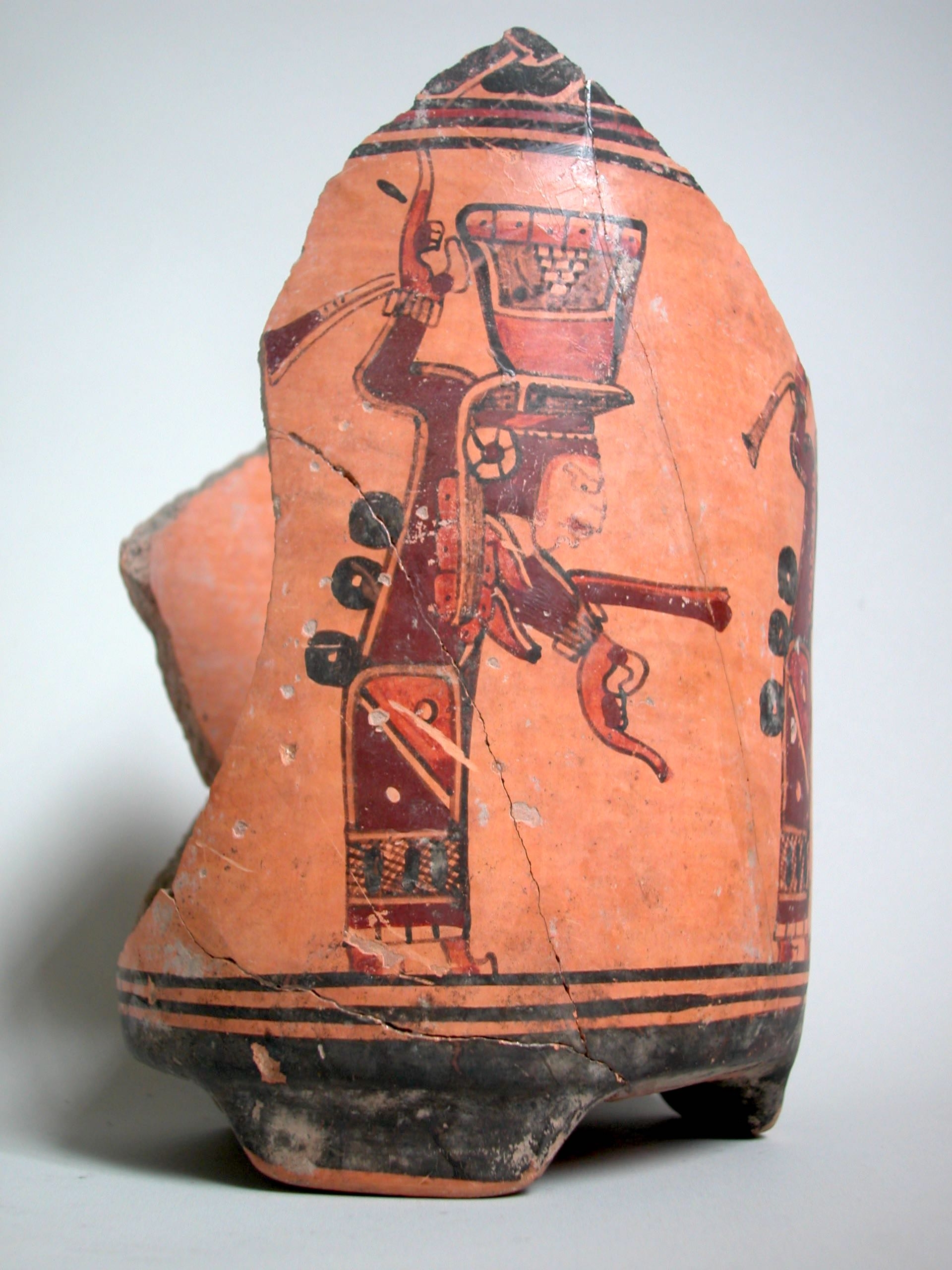Event: VIRTUAL PIZZA TALK: WEALTH, WOMEN'S LABOR, AND FORMS OF VALUE: THINKING FROM THE STUDY OF ANCESTRAL CENTRAL AMERICA
Event Details
SPEAKER:
Rosemary A. Joyce
Professor and Chair of Anthropology
University of California, Berkeley
This talk builds on feminist scholarship criticizing a tacit distinction between household labor (as intimate, domestic, and ruled only by naturalized relations of sex and age) and extra-domestic labor to help advance understanding of gender and labor in societies of ancient Central America. Household production, the role of specific products of women's labor as standards of value and media of exchange, and the role of indigenous ontologies in which material animacy and animating spirits occupied central places in exchanges we might otherwise think of as economic will be considered.
Full abstract:
 As renewed interest in inequality sparks a turn to the archaeologically documented past as a source of data for generalizing models explaining the roots of the contemporary economic reality, it is worth pausing to question how pasts that were shaped under far different social conditions can be treated as equivalent to the contemporary world of nation states and global economies. In this paper, I examine three sources of incommensurability that should be taken into account in any attempt to think from the past of economic relations to the present. The first of these examines how labor is conceived of, counted, and understood in these different situations. As feminist scholars of the contemporary economy have long noted, large areas of economic activity by women are routinely excluded in modern analyses. Such household maintenance work rests on a tacit distinction between household labor (as intimate, domestic, and ruled only by naturalized relations of sex and age) and extra-domestic labor. For the societies of ancient Central America, such a division simply did not exist. Not only did a large part of the organization of agricultural labor build on household relations; women's specialist craft production, in particular, was critical to economic relations. This leads to the second aspect of incommensurability that I consider: the identification and mobilization of standards of value and exchange. In these societies, cloth produced by women working in domestic spaces was one of the enduring standards of value, specifically important in tribute payments that established and perpetuated political hierarchies. Cloth's use in this fashion cannot be disentangled from the social relations in which it was embedded. Nor can the social relations which gave value to other key media used to measure value in economic exchanges be equated, even when the same social agents, women, have key roles in production, for example, in the cultivation of cacao, a second standard of value. By considering these two media, and the way that they relate to women's economic activities extending from domestic space to cosmopolitan marketplaces, I identify a third contradiction to conceptualizing the ancestral Central American economy in terms drawn from the current situation: the important of ideologies of material animacy and the role of animating spirits in exchanges we might otherwise think of as economic.
As renewed interest in inequality sparks a turn to the archaeologically documented past as a source of data for generalizing models explaining the roots of the contemporary economic reality, it is worth pausing to question how pasts that were shaped under far different social conditions can be treated as equivalent to the contemporary world of nation states and global economies. In this paper, I examine three sources of incommensurability that should be taken into account in any attempt to think from the past of economic relations to the present. The first of these examines how labor is conceived of, counted, and understood in these different situations. As feminist scholars of the contemporary economy have long noted, large areas of economic activity by women are routinely excluded in modern analyses. Such household maintenance work rests on a tacit distinction between household labor (as intimate, domestic, and ruled only by naturalized relations of sex and age) and extra-domestic labor. For the societies of ancient Central America, such a division simply did not exist. Not only did a large part of the organization of agricultural labor build on household relations; women's specialist craft production, in particular, was critical to economic relations. This leads to the second aspect of incommensurability that I consider: the identification and mobilization of standards of value and exchange. In these societies, cloth produced by women working in domestic spaces was one of the enduring standards of value, specifically important in tribute payments that established and perpetuated political hierarchies. Cloth's use in this fashion cannot be disentangled from the social relations in which it was embedded. Nor can the social relations which gave value to other key media used to measure value in economic exchanges be equated, even when the same social agents, women, have key roles in production, for example, in the cultivation of cacao, a second standard of value. By considering these two media, and the way that they relate to women's economic activities extending from domestic space to cosmopolitan marketplaces, I identify a third contradiction to conceptualizing the ancestral Central American economy in terms drawn from the current situation: the important of ideologies of material animacy and the role of animating spirits in exchanges we might otherwise think of as economic.
Register for this Cotsen Virtual Pizza Talk here! You will receive instructions on viewing the talk after registering.


